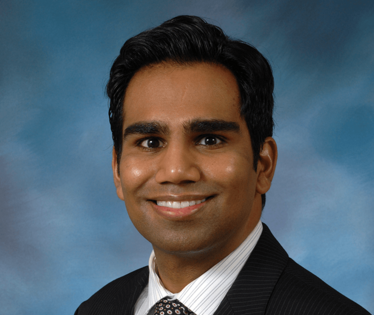Why ‘Sexy’ Needs Substance
We need to explain the context when using ‘grab bag’ phrases in science and medicine
We all like to hear things in soundbites but, in my view, we should also explain what we mean when we use terms such as epigenetics, stem cells and precision medicine.
I’ve been in the stem cell field since 1999, and in epigenetics since 2008, and I think the term epigenetics is becoming like ‘stem cell’ in that it means many different things to different people. Scientists and clinicians have been expressing their concerns about how the term epigenetics can get misused in the media (1) – and we need to be more cautious with it. Why? Epigenetics could essentially mean anything; some of the influences are outside genetics. My concern is that using epigenetics as a ‘grab bag’ term is not helpful for science, patients or clinicians.

Whenever I talk about epigenetics, I quickly provide context of how I intend to use the term, stating that I am using it to refer to chemical modifications that occur to DNA and histones, and how these changes link to gene expression. Doing so brings me to a relatively focused area, so I can talk about some of the mechanisms driving the changes.
Going back to the stem cell analogy, some clinics state they are using stem cells – but don’t truly know if the “stem cells” they purport to use share defining characteristics of these cells such as self-renewal and tissue-specific differentiation (2). And in some cases, these clinics are putting patients in danger; take, for instance, the widely reported case of three female patients in Florida who suffered blindness as a result of an untested “stem cell therapy” (3).
Precision medicine is another grab-bag term. But haven’t we always been doing precision medicine? I am a retina specialist, and when I see a patient with macular degeneration or diabetic retinopathy, I routinely take into account their medical history such as whether they smoke and what medications they take, their A1C, and the findings from the retinal exam. One could (truthfully) say, “I’m practicing precision medicine!” – after all, the treatments are being tailored to the patient based on the unique characteristics of their disease. So again, rather than using ‘precision medicine’ as a grab bag term, I try to contextualize my usage: “By precision medicine, I mean that the patient has particular germline or somatic genetic changes (mutations or copy number alterations) or epigenetic changes (over expression or under expression of specific genes) – and based on those genetic or epigenetic alterations, I can now link the patient’s disease to a more tailored diagnosis, treatment, or experimental intervention being tested in a clinical trial.”
The bottom line? The moment we start using specialized terms, such as epigenetics, stem cells and precision medicine, we should also define them and include the context of how we are using them to describe our patients or their treatments.
- Chris Woolston. “Researcher under fire for New Yorker epigenetics article”, Nature (2016). Available at: bit.ly/Woolston. Accessed July 19, 2017.
- RC Rao et al., “Stem cells for retinal disease: a perspective on the promise and perils”, Am J Ophthalmol, 179, 32–38 (2017). PMID: 28428049.
- AE Kuriyan et al., “Vision loss after intravitreal injection of autologous ‘stem cells’ for AMD”, N Engl J Med, 376, 1047–1053 (2017). PMID: 28296617.
Rajesh Rao is vitreoretinal surgeon, clinician-scientist, and Assistant Professor of Ophthalmology and Visual Sciences at the Kellogg Eye Center, Assistant Professor of Pathology, and Leslie H. and Abigail S. Wexner Emerging Scholar at the A. Alfred Taubman Medical Research Institute, University of Michigan, USA.















